STEM
-
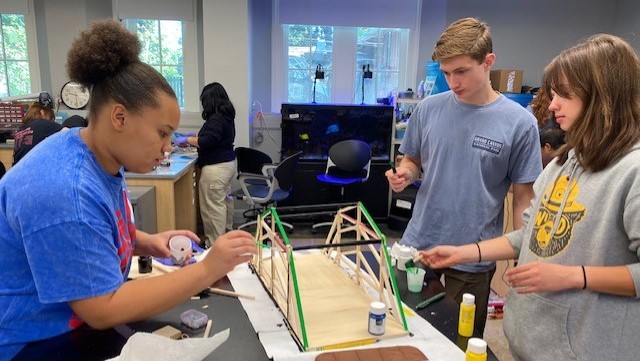
Jefferson Street program highlights connection between engineering and community engagement for Nashville high school students
A pilot program started by Ghina Absi, assistant professor in the practice of civil and environmental engineering at Vanderbilt University, is helping to spark high school students’ interest in engineering and STEM as well as show them the impact they can have on their communities. The program is… Read MoreOct. 30, 2024
-

NSF grant helps advance AI-based technology that aims to put more neurodivergent individuals in STEM workforce
Vanderbilt researchers have been awarded a National Science Foundation grant to advance research that uses artificial intelligence to improve communication between neurodivergent and neurotypical youth and adults with the goal of placing more neurodivergent individuals with conditions like autism in the STEM workforce. The three-year $900,000 award is through NSF’s… Read MoreOct. 1, 2024
-
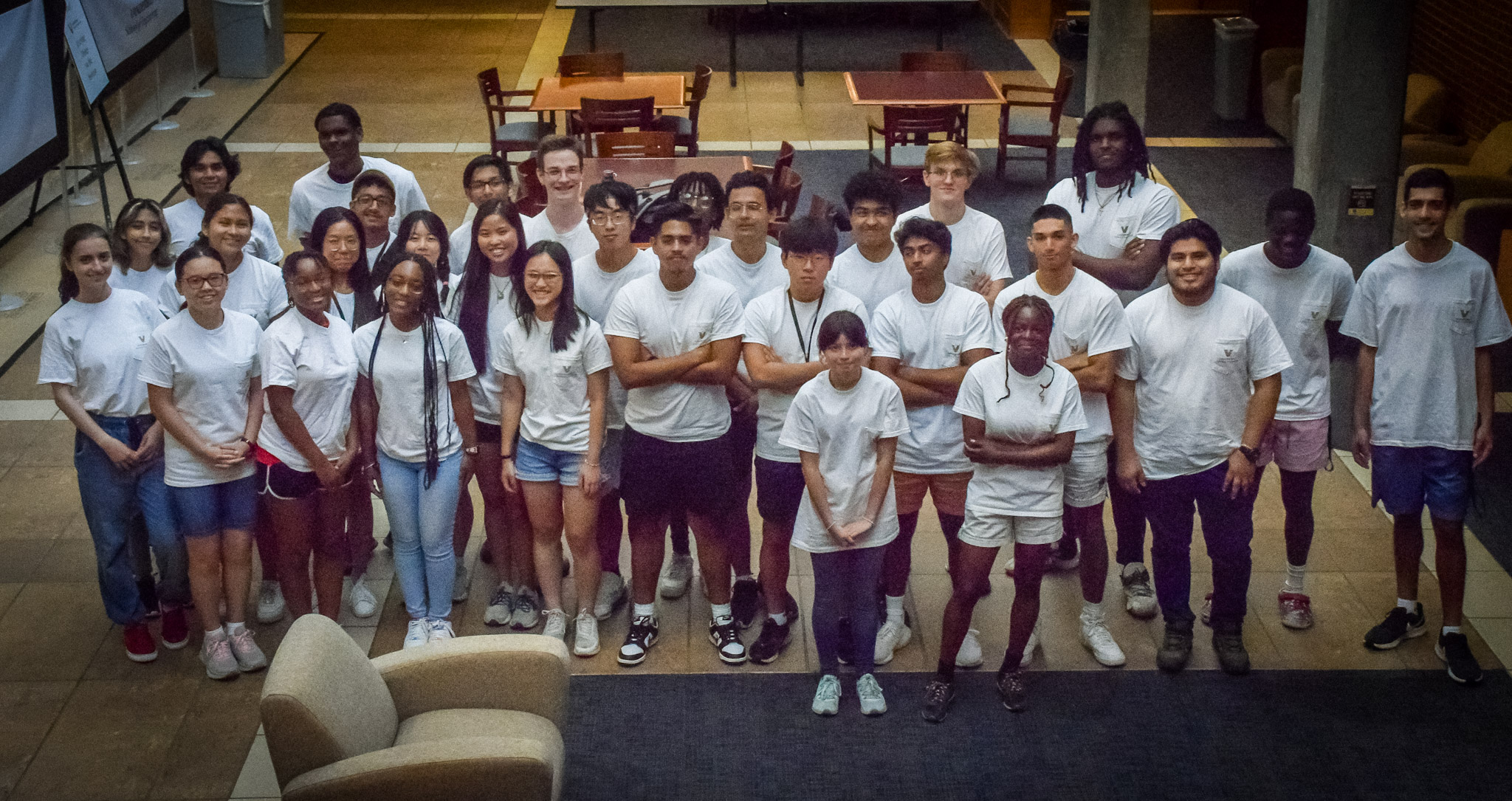
Summer bridge program helps first-year engineering students find success
A summer transition program for incoming Vanderbilt freshmen is helping them attain success in the School of Engineering, and beyond. This is the second year of the Fall Early Start Transition (FEST) I V A L program that will take place July 6-August 3. Thirty students were invited to participate… Read MoreJul. 6, 2023
-
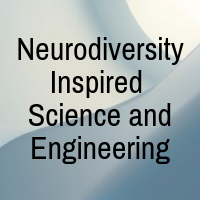
Neurodiversity Inspired Science and Engineering graduate trainee program now accepting applications
Applications are open for the Neurodiversity Inspired Science and Engineering (NISE) graduate trainee program. NISE engages students across STEM disciplines in the development, deployment and commercialization of future of work at the human technology frontier approaches and devices that support neurodiverse individuals, and/or that are inspired by their… Read MoreApr. 29, 2022
-

Self-powered wildfire detection plan earns CEE team national runner-up
A team of Vanderbilt undergraduate engineering students took the second spot in a national Jump into STEM challenge to develop holistic solutions that improve the resilience of the built environment. Francisco Diaz-Rodriguez The students—Francisco Diaz-Rodriguez, Jillian Flynn, Alex Holzke, and Ethan Rand—proposed a self-powered system to detect wildfires, especially in… Read MoreJan. 13, 2022
-

Two virtual seminars offered in November for students, postdocs interested in STEM public policy careers
Several Vanderbilt offices will partner to host two virtual events focused on federal science, technology, engineering and mathematics policy on Nov. 1 and 8. On Monday, Nov. 1, from 1 to 2 p.m. CT, STEM undergraduate and graduate students and postdocs considering careers in public policy are… Read MoreOct. 25, 2021
-
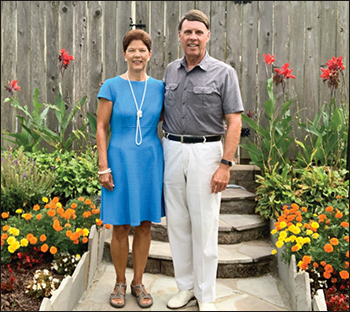
Potts Scholarship to support STEM students in A&S, School of Engineering
David Potts and his wife, Frances Candi Potts, are determined to help others. They recently documented their intent to establish the Potts Scholarship through a bequest gift to provide financial support for undergraduate students studying science, technology, engineering and mathematics at the College of Arts and Science or the School of… Read MoreNov. 6, 2020
-
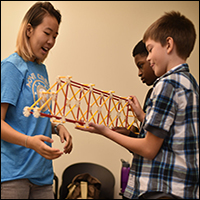
Civil engineers at Vanderbilt host Nashville STEM program, guide interactive experiences on campus
Vanderbilt’s chapter of the American Society of Civil Engineers recently hosted a group of local middle school students for a half-day of hands-on learning. Held on a Saturday, the Sept. 28 event included a lecture, interactive projects and a campus tour, and was a partnership between Vanderbilt ASCE and i3… Read MoreOct. 3, 2019
-

Campus ASCE chapter invites Hillsboro students to ‘Dream Big’
Engineers have made possible incredible achievements – from Shanghai Tower to solar cars, from an ancient rope bridge to underwater robots, from the Great Wall of China to smart cities. The common denominator is not math or science. It’s imagination. That’s the message the Vanderbilt ASCE Chapter shared with… Read MoreDec. 6, 2017
-

Interdisciplinary NetsBlox project makes computer programming intuitive
Professor Akos Ledeczi and Ph.D. student Brian Broll work with their NetsBlox intuitive visual programming platform. (Vanderbilt University) Vanderbilt University Professor of Computer Engineering Akos Ledeczi doesn’t want everyone to become a programmer. But understanding how computers think, interact, and do what we want them to do – those are 21st century skills, he said. In NetsBlox, a visual programming environment, Ledeczi and an interdisciplinary team are developing a teaching tool that introduces the basics and a high-level view of distributed computing. The team has worked with students as young as middle schoolers and has several upcoming camps and workshops with young learners as well as high school students. NetsBlox is built on top of Snap!, an environment created at the University of California at Berkeley. Snap! is based on Scratch, the best-known programming tool for kids from the MIT Media Lab. Young students use Scratch to create basic Pong-like games, animations or virtual stories. Snap!, a visual drag-and-drop programming language, picks up where Scratch leaves off, making it an appropriate introduction to computer science for high school and college students. Public data sets expand possibilities NetsBlox adds message passing, a way computers communicate with each other; access to a set of online data sources in the public domain – maps, weather, movies, trivia, and earthquakes are a few; and introduces distributed programming. The goal is to make writing a distributed computer program much like solving a simple puzzle. With NetsBlox, for example, an average high school student can create a simple multiplayer game, run it on her phone and play against a friend over the internet after just a few weeks of instruction. The popularity of massively multiplayer online role-playing games made this approach a “no-brainer,” Ledeczi said. The jump to distributed programming and the computational thinking behind it is significant. A distributed program is actually multiple programs running on different computers communicating and synchronizing with each other. Think of the difference between going out to dinner alone or organizing a wedding reception, including picking the date and time, confirming the most important guests can make it, sending invitations, organizing transportation, reserving the place, ordering catering and booking a band. Distributed programming can be far more complex than simple two-person games, but a game introduces the concepts and forces students to program information to send somewhere else plus consider delays and response times. With the data sets, students can create movie quiz games and trivia contests to play with each other. Data on earthquakes, air pollution, astronomy, and weather can be the foundation for a school science project. Read MoreMay. 30, 2017